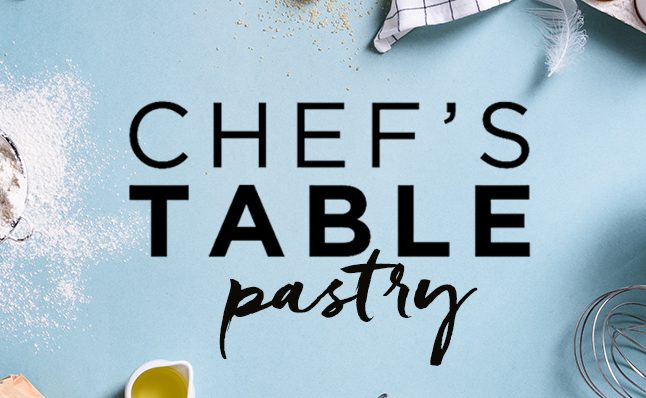Television and streaming service binge-watchers are familiar with the cooking and food-related shows that spice up the palettes of judges and showcase the amazing talents of the culinary world. Netflix’s documentary series “Chef’s Table” dedicates each episode to one world-renowned chef’s life and career.
In its first season, “Chef’s Table” tasted victory with multiple nominations and awards flooding the documentary series in 2015.
On April 13 of this year, foodies will get to experience the brilliance of the show once more in a spinoff of “Chef’s Table” called “Chef’s Table: Pastry.” As anticipation for the first season grows, streamers are actually focusing not on the food and acclaimed patissiers, but rather on the lack of representation of females in the food industry.
The trailer for the highly anticipated spinoff heated many when viewers were given a list of acclaimed pastry chefs that will be featured in all of the “Chef’s Table: Pastry” episodes — shockingly, this list lacked much female presence.
The patissiers that will be featured on the show include Will Goldfarb (Indonesia), Corrado Assenza (Italy), Jordi Roca (Spain) and Christina Tosi (United States). Tosi, known as a judge on the hit Fox show “Masterchef” and owner of Momofuku Milk Bar, represents a small percentage of female representation that women have in the culinary world.
After the trailer was released, social media went wild, pointing out a heated controversy over the lack of females in the new “Chef’s Table” spinoff.
The trailer crucially pointed out that “Chef’s Table,” overall as a series, has fixated their premise on featuring mostly men throughout its seasons. In total, there have only been seven female chefs featured on the series, when in total there have been 26 chefs featured. That means that there is roughly only 26 percent of airtime that represents women on “Chef’s Table.”
Men have typically dominated in the savory category of cooking, though culinary schools still have a semi-neutral ratio of male to female students, evenly measured at 55 percent male and 45 percent female according to an article by Pat Tanner. Typically in cooking school, gender doesn’t matter — things like skill, creativity and adaptability are the main components that create successful chefs.
The article also states that women have consistently outranked males in baking. Pastry schools, according to the article, have seen women make up a significant portion of the aspiring students, making up 80 percent of enrollees.
In response to the new show’s trailer release, Twitter users and writers shared their words and research to show just how much women are underrepresented on “Chef’s Table.” Writers Maura Judkis from the Washington Post and Amanda Kludt from Eater both came to the conclusion that in a female-dominated subset of culinary arts, the female presence of pastry chefs is unbalanced when compared to male presence.
In Judkis’ article, she sheds light on the fact that women have mastered the pastry-making craft and generally have leaned towards becoming pastry chefs, evening stating that “some [people] in the industry have called the pastry station [of a restaurant] the ‘pink ghetto’ or ‘pink dungeon’ — a place where women can thrive, but never really leave.”
The quote drives the notion that, in the history of the culinary world, being a pastry chef has customarily been characterized as a feminine role, despite the fact that both men and women can and do dominate multiple culinary fields. Chefs generally tend to specialize in a culinary area that they have interest and skill in — things that gender doesn’t necessarily have control over.
For many women who are pastry chefs, they believe that their skills help them create wonderful edible creations and that their qualities as chefs are needed to create successful baked goods. They have precision, patience and accurate science. Men can hone in on those skills as well, but women seem to be drawn more to pastry cooking and mastering the craft.
Ultimately, a chef’s soul is the main ingredient to success; without soul and the skills to get the job done right, the end result of making people taste and witness edible art wouldn’t be as rewarding.
In the food industry itself, women and men are fairly even when it comes to having a job, with women comprising almost 55 percent of the industry. Yet, the skills that men and women need to succeed in the food industry is bland when it comes to the recognition factor; according to Fred Decker in his article “Male vs. Female Chefs,” many women are not credited and adorn with awards and accolades.
The James Beard Awards are just one set of awards that chefs can win (on top of Michelin stars and other accreditations) and in the Outstanding Baker and Outstanding Pastry Chef categories, female nominees dominate.
Christina Tosi herself is a recipient of the 2012 James Beard Award for Outstanding Pastry Chef (alongside other awards, publications and business ventures outside of owning bakeries). Why aren’t there more women like her featured throughout series like “Chef’s Table?”
We agree there should be better representation of women across the board and we're committed to improving. There are many amazing chefs, from all walks of life, who inspire us and whose stories deserve to be told. We hope you enjoy the new season and the talented chefs behind it!
— David Gelb (@ThisIsDavidGelb) March 21, 2018
According to producer David Gelb, there was hard time finding women to showcase in the pastry series, but from this responding tweet above it seems like the show has plenty of options for showcasing women in the food industry.
Kludt from Eater brings up a good point: There are so many women that can represent the pastry-cooking community — how could you not find another woman to juxtapose between the other chef judges?
Christina Tosi’s honors, businesses and personality are indeed recognizable, but she cannot solely represent all of the women in the pastry-making industry. She does an amazing job and deserves to be featured alongside her other female colleagues.
Gender equality in the workplace is a hard topic to tackle and analyze. The food industry usually focuses on the skillset needed to perform, but the jobs that come from the industry tend to be gendered.
Historically, baking has usually been a woman’s job, while men have taken the more savory roles. As a result, many shows have generally featured men, despite women having the same amount of skill or more.
Netflix’s “Chef’s Table” and “Chef’s Table: Pastry” not only whip up a heated debate about the lack of representation for women in the culinary world, but they also illustrate that there needs to be more recognition for women’s talents too.
Women should be showcased proudly within cooking shows for their skills and ability to create culinary wonders, especially if their specific area of expertise has gendered stigmas surrounding it.

















